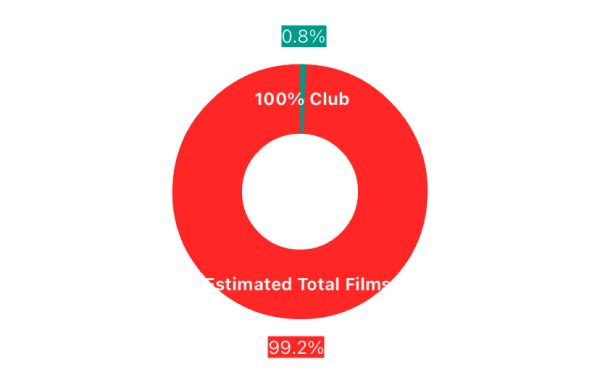Few anime films capture the quiet beauty of human connection as poignantly as “Look Back.” The short film, written and directed by Tatsuki Fujimoto, the acclaimed creator of “Chainsaw Man,” premiered for a short time in theaters, and later on Amazon Prime to universal praise. With a perfect 10/10 Rotten Tomatoes score, the 57-minute feature is a masterful exploration of creativity, friendship, and loss.
“Look Back” centers on the intertwined lives of two aspiring manga artists, Fujino and Kyomoto. Fujino is confident and outgoing, thriving on accolades for her work. Kyomoto, in contrast, is a reclusive perfectionist who uses drawing as an escape from her solitary world. What begins as a rivalry transforms into a profound creative partnership that shapes both characters’ artistic journeys. Together, they navigate the highs and lows of chasing their dreams and balancing their individual growth with the bonds they share.
The narrative unfolds with grace, combining slice-of-life storytelling with a reflective depth that is rare in anime. Fujimoto masterfully weaves themes of ambition, connection, and the inevitable passage of time, leaving viewers with much to contemplate about their own lives.
Studio MAPPA’s animation elevates Look Back to a visual experience that is hard to match this year. The art direction captures both the intimacy of small, quiet moments and the grandeur of the characters’ imaginations. Each frame is packed with detail, from the texture of Fujino’s busy school life to the hushed solitude of Kyomoto’s room. One particularly striking sequence shows Fujino walking through fragmented memories visualized as manga panels. This innovative use of the medium adds layers of meaning, drawing viewers into the emotional complexity of the characters’ experiences. The film’s use of light and shadow, coupled with its subtle shifts in color palettes, enhances its storytelling, amplifying key emotional beats.
Achieving a perfect 10/10 score on Rotten Tomatoes is a rare feat for any film, let alone an anime film. Rotten Tomatoes ratings are determined by the collective votes of a global audience, encompassing fans, casual viewers, and critics alike. This diverse pool of perspectives often leads to varying opinions, making a flawless score nearly impossible to maintain. For an anime film like “Look Back” to reach and sustain such acclaim speaks to its universal resonance and emotional impact. Anime, though growing increasingly mainstream, still faces challenges in being recognized on the same level as traditional live-action films, particularly outside of its core fan base. Look Back’s perfect rating not only underscores its quality but also signals the growing appreciation for the medium’s storytelling power across audiences worldwide. The graphic below displays how rare the phenomenon is.

The heart of “Look Back” lies in its characters. Fujino and Kyomoto are flawed yet deeply relatable, embodying the struggles of self-doubt, grief, and the search for purpose. Fujimoto does not shy away from darker themes, as widely recognized from his work on “Chainsaw Man.” Such as the fragility of life and the impact of tragedy, but he handles them with a sensitivity that is both moving and thought-provoking.
At the same time, the film is a celebration of resilience. It underscores the healing power of art and its ability to connect people even across vast distances—emotionally or physically. Fujino and Kyomoto’s journey reminds viewers that while life is unpredictable, the relationships we nurture and the art we create leave a lasting legacy.
“Look Back” is more than just an anime short film—it’s a deeply personal reflection on creativity, ambition, and the connections that define us. Tatsuki Fujimoto has crafted a story that resonates far beyond its runtime, reminding viewers of the fragile beauty of life and the enduring power of art.
With its perfect Rotten Tomatoes score and universal acclaim, “Look Back” stands as one of the most compelling anime releases not just of this year, but of this continuing decade. It is a must-watch for fans of the medium and newcomers alike—a film that lingers in your heart and mind long after it ends.


